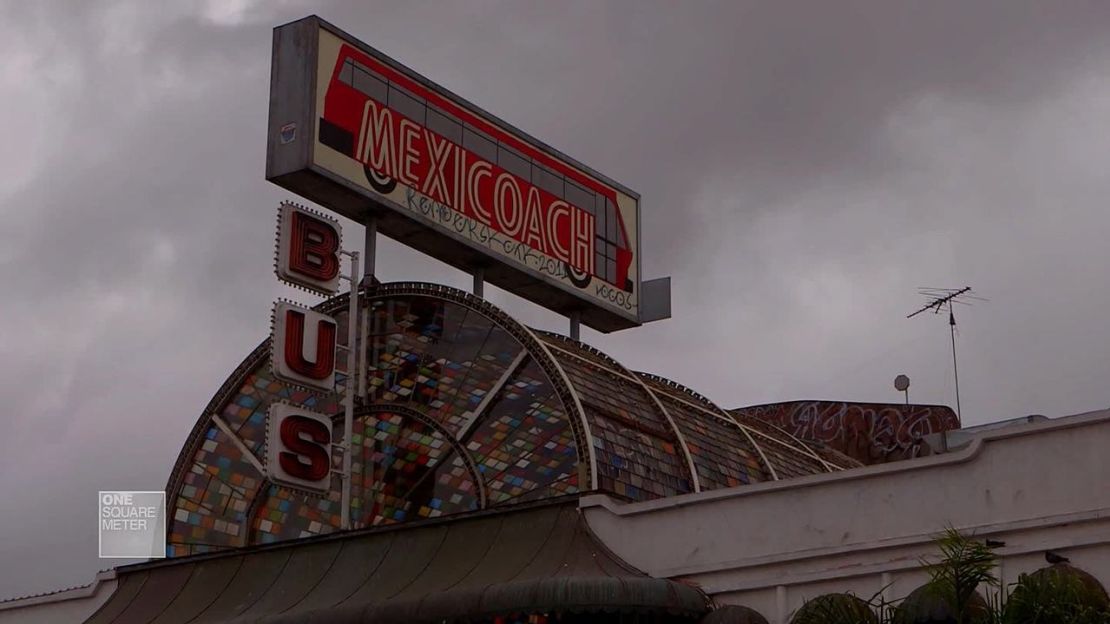Editor’s Note: This story was originally published in June 2015.
Walk into the building that once housed Tijuana’s main bus station, and you are met with a dazzling display of color and natural light.
Sunlight shines through a bright array of stained glass while multitoned tiles adorn the walls and thick brick pillars. The Terminal Turistico Tijuana was once a bustling gateway to the border city, acting as an arrivals hall for many a tourist on the way to a vacation in Mexico.
In its party-town heyday, Tijuana was commonly known for spring break, cheap margaritas and vice. As international pop-star Manu Chao once sang “Welcome to Tijuana, tequila, sexo, marijuana.”
A new Tijuana
These days, Tijuana is looking to swing to a different beat. Front and center of this effort is the bus station, which is now home to a dynamic tech cluster of international companies such as Uber and Yelp.
“All this strip used to be very vibrant and energetic,” said Miguel Buenrostro, who helped to lead the bus station restoration project of downtown Tijauna. “I remember when I was a child with my family, with my father and my grandfather,” he adds.
Buenrostro lived away from his hometown for a time, and when he came back, he recalls he “saw all these buildings basically abandoned.”
It was 2010, and violence was gripping Tijuana as drug gangs fought for territory and settled scores. The building itself had been abandoned for several years and tourism had slowed.

“When we talked to the owners we knew there was a possibility we could do an intervention on these spaces and create vibrancy again by gathering up a community of people,” he noted.
The community they decided to target was Tijuana’s emerging tech industry and its need for shared offices. Soon after, HUBSTN (short for Hub Station), a place where aspiring tech firms and established international companies alike could set up shop, was born.
Seven luxury vacations in Mexico
Geographic benefits
Given that the city of 1.3 million people is just over the border from California, HUBSTN’s geography is a key selling point to potential clients.
“In the same place you can develop your start-up really affordably and still get access to both markets (in) Latin America and the United States,” said Marco Soto, co-founder of HUBSTN.
The building features private offices as well as a central mixed-use space for freelance members of the cluster. Estefany Becerril, a community ambassador for Yelp, said she was hooked on HUBSTN on her first visit.
“When we walked in we saw what it was in full effect,” Becerril said. “We saw an Uber meeting going on … it was an Uber representative, it was Marco the co-founder of HUBSTN and some other people. They were just chatting, bouncing off ideas and brainstorming. And it was pretty cool.”
Now open for a year, Hub Station’s founders are hoping theirs will be the first of many such spaces in Tijuana.
“The city is telling us, is screaming at us, that it needs spaces like this so it can go in another direction,” Buenrostro said. So successful has the project been that Buenrostro sees the example being copied elsewhere in Mexico.
“(Tijuana) can be thought of as a different city, not of the same stigma that has been generalizing ideas about the border.”
If such a development came to pass, it would surely serve to further enhance Mexico’s reputation welcoming business and tech player.
















